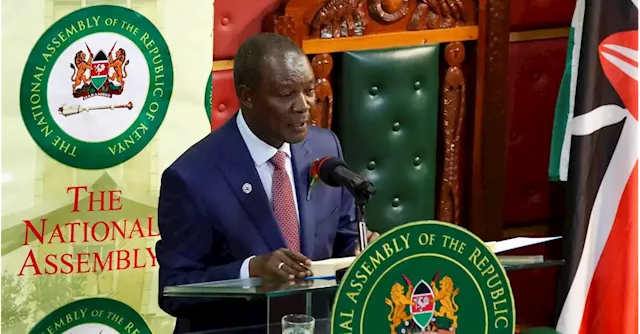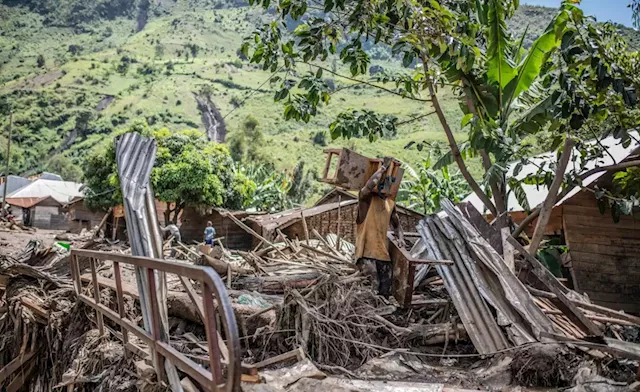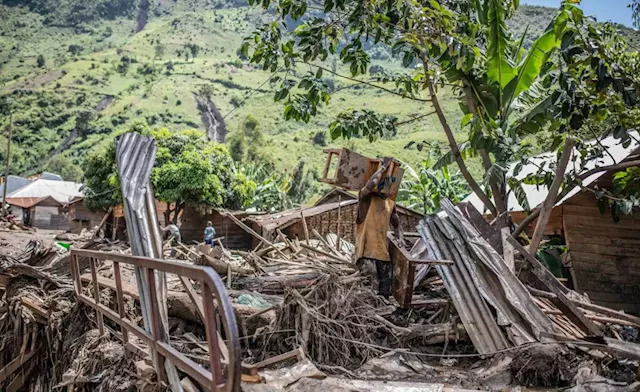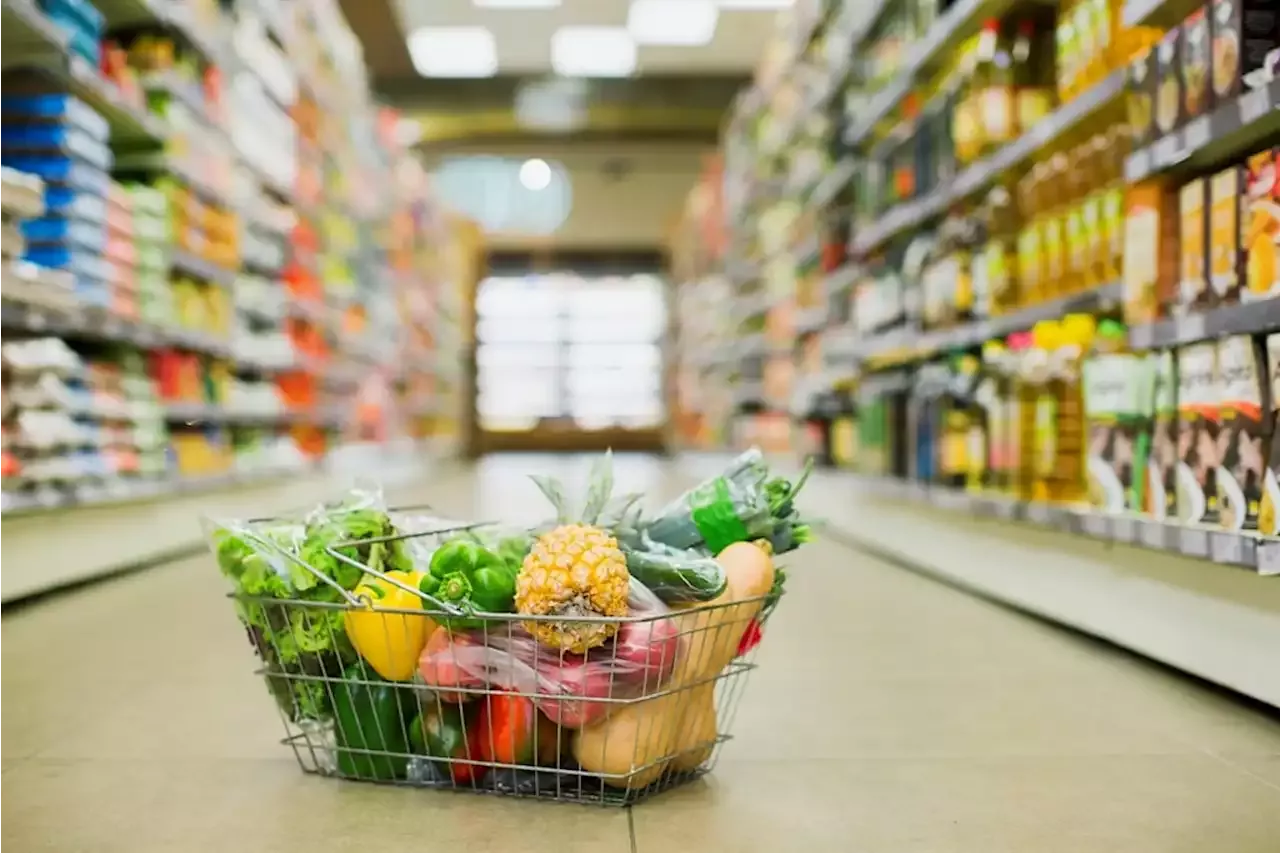French Finance Minister Bruno Le Maire said last week he had secured a pledge from 75 top food companies to cut prices on hundreds of products next month to reflect a fall in raw material costs.
Under the legislation, updated in 2021, food producers and retailers are bound to take account of agricultural commodities' price moves, either upwards or downwards, when setting their own prices. This year, food producers were able to secure higher prices, based on a surge in costs of raw materials, but many of these have since fallen back sharply. Wheat, for example, is now trading 40% lower than a year ago.
Business Business Latest News, Business Business Headlines
Similar News:You can also read news stories similar to this one that we have collected from other news sources.
 Kenya finance minister's budget speech for 2023/24The following are highlights of the Kenyan government's budget for the 2023/24 fiscal year as presented to parliament by Finance Minister Njuguna Ndung'u.
Kenya finance minister's budget speech for 2023/24The following are highlights of the Kenyan government's budget for the 2023/24 fiscal year as presented to parliament by Finance Minister Njuguna Ndung'u.
Read more »
 Kenya finance minister vows to pay all due debts, cuts deficitKenya's finance minister on Thursday said the government will pay all debts when they fall due, and cut the budget deficit for the fiscal year starting next month to 4.4% from an estimated 5.8% in this financial year.
Kenya finance minister vows to pay all due debts, cuts deficitKenya's finance minister on Thursday said the government will pay all debts when they fall due, and cut the budget deficit for the fiscal year starting next month to 4.4% from an estimated 5.8% in this financial year.
Read more »
 A Climate Finance Goal That Works for Developing NationsAfter years of failing to meet climate finance commitments, the new climate finance goal under discussion in Bonn, Germany is critical, but without supporting reforms of the global financial architecture we risk repeating past mistakes, writes Richard Kozul-Wright for Inter Press Service. The current goal of mobilising U.S.$100 billion per year for developing countries by 2020, which has not been met, will expire in 2025. However, U.S.$100 billion is a fraction of what is needed to support developing countries in achieving their climate goals. According to the United Nations Framework Convention on Climate Change (UNFCCC), developing countries require at least U.S.$6 trillion by 2030 to meet less than half of their existing targets. Additionally, climate finance primarily takes the form of loans, exacerbating sovereign debt issues. Instead of being based on arbitrary targets, the new goal must rigorously quantify and respond to countries' demonstrated needs and be tracked based on an agreed methodology that can prevent the double-counting and significant overestimations of the past. Developing countries face the double challenge of simultaneously investing in development and in climate mitigation and adaptation, while addressing the costs of loss and damage. The United Nations Conference on Trade and Development (UNCTAD) highlighted four priorities for climate finance: addressing debt distress in low-income countries, maximising the impact of IMF's Special Drawing Rights, leveraging government-backed development banks, and mobilising private finance. These priorities offer a starting point to meet the urgent challenge of climate change and support all developing countries in achieving their climate goals.
A Climate Finance Goal That Works for Developing NationsAfter years of failing to meet climate finance commitments, the new climate finance goal under discussion in Bonn, Germany is critical, but without supporting reforms of the global financial architecture we risk repeating past mistakes, writes Richard Kozul-Wright for Inter Press Service. The current goal of mobilising U.S.$100 billion per year for developing countries by 2020, which has not been met, will expire in 2025. However, U.S.$100 billion is a fraction of what is needed to support developing countries in achieving their climate goals. According to the United Nations Framework Convention on Climate Change (UNFCCC), developing countries require at least U.S.$6 trillion by 2030 to meet less than half of their existing targets. Additionally, climate finance primarily takes the form of loans, exacerbating sovereign debt issues. Instead of being based on arbitrary targets, the new goal must rigorously quantify and respond to countries' demonstrated needs and be tracked based on an agreed methodology that can prevent the double-counting and significant overestimations of the past. Developing countries face the double challenge of simultaneously investing in development and in climate mitigation and adaptation, while addressing the costs of loss and damage. The United Nations Conference on Trade and Development (UNCTAD) highlighted four priorities for climate finance: addressing debt distress in low-income countries, maximising the impact of IMF's Special Drawing Rights, leveraging government-backed development banks, and mobilising private finance. These priorities offer a starting point to meet the urgent challenge of climate change and support all developing countries in achieving their climate goals.
Read more »
 Africa: A Climate Finance Goal That Works for Developing CountriesAfter years of failing to meet climate finance commitments, the new climate finance goal under discussion this week in Bonn is critical, but without supporting reforms of the global financial architecture we risk repeating past mistakes.
Africa: A Climate Finance Goal That Works for Developing CountriesAfter years of failing to meet climate finance commitments, the new climate finance goal under discussion this week in Bonn is critical, but without supporting reforms of the global financial architecture we risk repeating past mistakes.
Read more »
